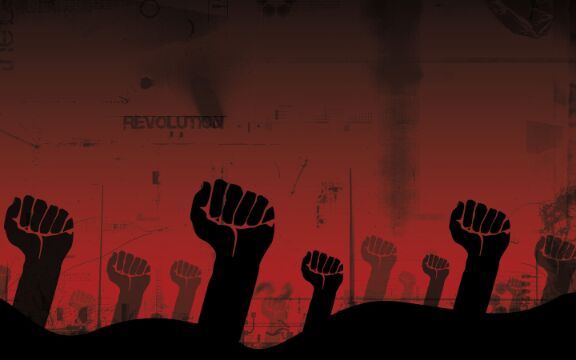Speaking truth to power
Dissent arising against imperfections in governance requires a healthy outlet which, in turn, should hold a mirror to the system to drive positive outcomes

Governments around the world have always been the subject of criticism. Whether the media or academia or the social platforms, all the spaces are crowded — on a daily basis — with what the government of the day hasn't done, or has done but the same is insufficient or inefficient. As a leviathan, its size doesn't lend itself to the speed of action or even of implementation of policy. Most times, it does not even lend itself to correction or admit to having goofed up anywhere. It likes to believe itself in the right, no matter whatever its ideology. Good government is an oxymoron but with a very fragile ego. And that is problematic.
All of us citizens perceive that our governments are all-powerful and can do anything. The truth is different. They function with a lot of flexible constraints. For one, the decision-makers are not rewarded for the good that they do. In fact, the customary belief is that career prospects are brighter by the day in case one does not cause turbulence in the assigned job. On the contrary, 'no' decisions with a prominent 'yessir' attitude nearly guarantees a shining career and plum jobs. Success is rarely rewarded and failure gets rarely punished except when it is extreme. If our instruments of governance are so rusted and worn out, deficits in performance are bound have an all-round impact. Time does not forgive inaction but multiplies its evil consequences. This would naturally attract loads of discontent and criticism. Little wonder, we hear the clamour of an unsatisfied lot of people. Naysayers, brickbats from sundry media professionals, many times even leading to street protests, are the stuff of the daily news. These then get lighted up on the TV channels and heat up the social media spaces to the discomfiture of our governors.
At one level, this is what democratic governance really is all about. Freedom of speech is a prominent feature in democracies. Those who have the onerous burden of having to manage governmental systems are — by natural instinct — insular and prefer to work behind the scenes, and even anonymously. Their preferred ambience is as thick a layer of opacity as possible. However, the work they do will perforce be in the spotlight, as whatever they do has to be in the larger public interest. They cannot be seen to advance a sectional or vested interest as that vitiates their oath of neutrality. At the same time, governments do not oblige or favour citizens when they perform their bounden duty. Public service is their mandate. Still, the size of advertisements listing a host of achievements of the government, encomiums and plaudits will happen for work well done. The citizen can feel it in his skin if the regulatory ecosystem is user friendly. In reality, it is the perception that counts. The sense of well-being of a citizen cannot be influenced merely by playing ducks and drakes with reality.
Dissent or critical inputs cannot change perceptions in substance even if they come out in the public domain unless there is general discontent. Sometimes, open and voluble dissent strengthens the sense of well-being of the citizens, reassuring them of having their own freedom of speech intact, though they may not need to use it or be inclined to use it, in any pronounced manner.
Truth to power, in its different forms, is a valuable tool for the governors of the lands. Their reliance on internal inputs from sources of different hues does not have the ring of alarm as from the ones placed in public platforms with freedom of speech being unrestrained and unfettered by flimsy barriers in the name of national security. Everyone is aware of the coercive ability of the state but to use it to curb criticism of state policy will always be counter-productive in the long run. Coercion is meant to get people to conform to the law and not to the law maker's discretion. Force or its threat, cannot change hearts, in fact, it will harden them. No government gets loved by its people merely because its power to damage liberties of common people or mute voices of contrarians is often used.
Democracies generally have a please-us-all psyche and its populations expect and seek such a policy ecosystem. Smart politicians love to pander to this expectation, no matter how impossible or impractical such notions are. But they offer an immediate connect to the popular perception, which tenuously links to the emotions of the electorate. Anything short of this will only generate dissent in the shape of scholars, analysts and opinion makers castigating or indicting the ideation of policy makers and their proximity to an unreal world. Dissent is letting off the steam and must have healthy outlets. Throttling such outlets will only lead to bursts of discontent or spillovers into the streets. This is their version of truth to power and must find its reception in the public domain. Reactions and rebuttals are welcome but retaliations are just not fair play because this only erodes the 'Iqbal' of the rulers.
Politics is an integral part of a democracy. If we have the latter, we will have to have the former, much as we may dislike the practitioners of the art of politics. The covenants of this relationship, written and unwritten, require truth be held at a premium for and by all. Anything less will only hamper our progress to the greatness we lay claim to as the reordering of our heritage.
The writer is the now retired-Director of the India Habitat Centre. Views expressed are personal



